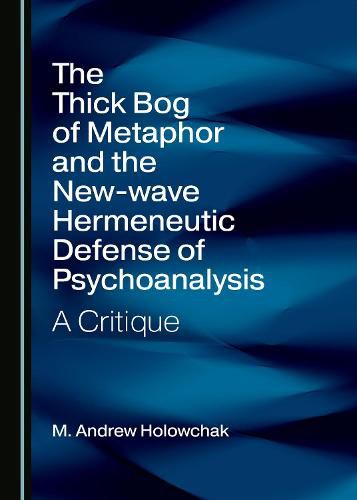Readings Newsletter
Become a Readings Member to make your shopping experience even easier.
Sign in or sign up for free!
You’re not far away from qualifying for FREE standard shipping within Australia
You’ve qualified for FREE standard shipping within Australia
The cart is loading…






Psychoanalysis, in Freud’s day and our own, has met with and continues to meet with staunch opposition from critics-from philosophers of science, like Adolf Grunbaum, and psychoanalysts, like Robert Holt-who see empirical confirmation as a problem of scientific practice. If therapists cannot ground therapy in a theory that is scientifically verifiable and that has some degree of confirmation, what is the merit of psychoanalysis, or more generally, of any form of psychotherapy?A common answer today, an apologia, is that psychotherapy is best understood as a hermeneutic discipline and not as a science. Psychotherapy, the arguments goes, is a shared experience between therapist and patient that aims at ontological disclosure, hermeneutic truth , or deconstructive decoding, and that is not a matter of science. Is that answer viable?This book maintains that today’s hermeneutical apologia of psychotherapy is a dodge, not a defense. It offers therapists-chiefly through the thick bog of metaphor, often incomprehensible use of language, and ad hoc appropriation of hermeneutics-a refuge to buffer themselves from the possibility of criticism of the scientificity of their discipline.
$9.00 standard shipping within Australia
FREE standard shipping within Australia for orders over $100.00
Express & International shipping calculated at checkout
Psychoanalysis, in Freud’s day and our own, has met with and continues to meet with staunch opposition from critics-from philosophers of science, like Adolf Grunbaum, and psychoanalysts, like Robert Holt-who see empirical confirmation as a problem of scientific practice. If therapists cannot ground therapy in a theory that is scientifically verifiable and that has some degree of confirmation, what is the merit of psychoanalysis, or more generally, of any form of psychotherapy?A common answer today, an apologia, is that psychotherapy is best understood as a hermeneutic discipline and not as a science. Psychotherapy, the arguments goes, is a shared experience between therapist and patient that aims at ontological disclosure, hermeneutic truth , or deconstructive decoding, and that is not a matter of science. Is that answer viable?This book maintains that today’s hermeneutical apologia of psychotherapy is a dodge, not a defense. It offers therapists-chiefly through the thick bog of metaphor, often incomprehensible use of language, and ad hoc appropriation of hermeneutics-a refuge to buffer themselves from the possibility of criticism of the scientificity of their discipline.